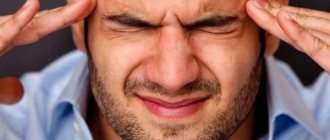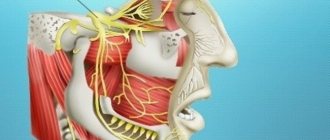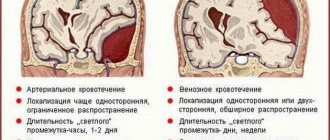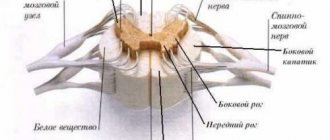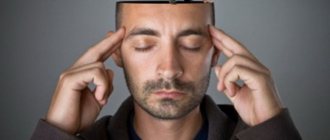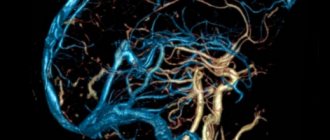General information
The study of abulia has been carried out since 1838. Currently, experts consider abulia as a symptom of other diseases and mental disorders, although there are attempts to consider this condition as an independent nosological unit.
Abulia, in which the patient feels a partial or complete lack of desire for any activity, is between:
- apathy - a psychotic state, which is accompanied by a lack of desire for any activity, an indifferent and detached attitude to what is happening around;
- akinetic mutism - a rare condition in which the patient practically does not speak or move, although such a possibility exists from a physical point of view (understanding of the surrounding reality is preserved, the patient follows the people around him with his eyes and finds the sources of sounds).
Abulia is distinguished from weak-willedness and laziness by the awareness of the need for any actions and the inability to force oneself to perform them (laziness and weak-willedness can be fought with the help of training and self-discipline, but with abulia this is impossible).
Since abulia is not an independent disease, its prevalence has not been described. It is believed that this symptom is detected quite often, since the main risk factors for its occurrence include depression, a common condition in countries with a high standard of living.
Symptoms
Emotional impoverishment and decreased vital activity are the basis of the disease in question, which is characterized by a very slow manifestation.
When the desire to compare a person’s behavior before and after creeps into the thoughts of loved ones, it’s worth talking about the problem.
It is important to consider the following clinical signs.
- Loss of interest in entertainment, companionship and favorite activities is considered the main symptom. Old hobbies are abandoned, but new ones do not come to replace them. You can initially detect that something is wrong when a person has free time and during this period he is simply inactive. Work or study is not accompanied by even a hint of enthusiasm; everything happens by inertia. Gradually, the patient moves study or work to the background, he is increasingly at home or wanders aimlessly nearby.
- Emotionally, such a syndrome is characterized by their complete absence - loss of the ability to sympathize or rejoice, complete indifference, hostility. Those closest to you are the easiest to notice changes.
- Social adaptation is characterized by complete aloofness and isolation - minimal communication with others, complete ignoring of questions or giving monosyllabic answers.
- In terms of motor skills, the following signs are characteristic:
- abrupt laugh or cough;
- rubbing hands;
- rocking or tapping your foot;
- careful examination of your own brushes.
- Physiological signs:
- the absence of a vegetative reaction is represented by a shine in the eyes, pallor or redness;
- the patient’s voice is deprived of any emotion, he becomes indifferent to any events;
- there are no facial reactions, be it fun, anxiety, sadness, antipathy or sympathy.
- Psychological signs are characterized by affective actions - loss of a sense of shame, inability to clearly express one’s thoughts, the use of primitive formulations, monosyllabic answers, failures in presentation, unreasonable cruelty towards strangers or close people, failure to maintain personal hygiene, and interest in things that are unpleasant for a normal person.
Kinds
Abulia can be:
- Congenital. Observed in severe mental retardation (oligophrenia). This intellectual disability is caused by brain pathology and is manifested by developmental delay or incomplete development of the psyche. Abulia is characteristic of torpid mental retardation (characterized by inhibited reactions).
- Acquired. May be temporarily present in cases of stupor (a movement disorder that can be catatonic, psychogenic and melancholic), stroke, or traumatic brain injury. Develops in schizophrenia, depression, borderline states, Parkinson's disease.
The combination of abulia and immobility is called abulic-akinetic syndrome, and when combined with apathy, apathetic-abulic syndrome is diagnosed.
What to do?
If you think you have Abulia
and the symptoms characteristic of this disease, then doctors can help you: psychiatrist, psychologist, psychotherapist.
We wish everyone good health!
Diseases with similar symptoms
Apathy (overlapping symptoms: 4 of 14)
Apathy is a mental disorder in which a person does not show interest in work, any activities, does not want to do anything and, in general, is indifferent to life. This condition very often comes into a person’s life unnoticed, since it does not manifest itself as painful symptoms - a person may simply not notice deviations in mood, since the causes of apathy can be absolutely any life process, and most often a combination of them.
Did you like the article? Share with friends on social networks:
Causes
Abulia develops when there is a lack of blood circulation or damage to the frontal area of the brain (affects the frontal lobe, basal ganglia, anterior cingulate cortex or capsular genu of the corpus callosum).
Observed when:
- traumatic brain injuries;
- brain tumors;
- encephalitis and meningitis;
- oligophrenia;
- borderline states (with circular and senile psychosis, psychoneurosis and hysteria);
- stroke;
- schizophrenia;
- severe depression;
- exposure to toxic substances.
Diseases in which abulia may be present
- normal pressure hydrocephalus;
- depression;
- schizophrenia;
- frontotemporal dementia;
- Parkinson's disease;
- Huntington's disease;
- Pick's disease;
- progressive supranuclear palsy;
- traumatic brain injury;
- stroke.
Alzheimer's disease
Lack of motivation has been reported in 25–50% of Alzheimer's patients. Although depression is also common in patients with this disease, abulia is not a simple symptom of depression because more than half of Alzheimer's patients with abulia do not suffer from depression. Several studies have shown that abulia is most common in cases of severe dementia, which may result from decreased metabolic activity in the prefrontal areas of the brain. Patients with Alzheimer's disease and abulia are significantly older than patients with Alzheimer's disease who do not lack motivation.
Important!
Additionally, the prevalence of abulia increased from 14% in patients with mild Alzheimer's disease to 61% in patients with severe Alzheimer's disease, which most likely developed over time as the patient grew older.
Pathogenesis
Man's conscious organization of his activities and behavior is carried out through will. Abulia is accompanied by a violation of volitional processes.
The main points of the volitional process include:
- the emergence of motivation and goal setting;
- the stage of discussion and struggle of different motives;
- decision-making stage;
- execution of the decision.
The neurophysiological basis of volitional acts is a complex interaction of various brain structures, in which:
- the cortical centers of the frontal lobes are responsible for the purposefulness of actions;
- regulation of voluntary movements is carried out by pyramidal cells;
- The energy supply to the cortical structures is carried out due to the reticular formation.
When one of these structures is damaged, disturbances in volitional processes are observed.
Treatment of abulia
Treatment of abulia is complex, since it involves methods of eliminating the root cause and abulia as a consequence. The root cause is treated with various medications:
- Schizophrenia is treated with atypical antipsychotics.
- Depression is treated with antidepressants.
Elderly people need attention from their relatives. Middle-aged people are encouraged to actively engage in various activities and hobbies. As for children, their treatment should be handled by a specialist. Parents themselves often nurture and groom their child’s abulous state, which is why he gets used to it, taking it for granted.
The main directions in the treatment of abulia are:
- Involvement in work when there is a reference to the fact that without the patient nothing will happen.
- Introducing it in the company of relatives and friends.
- Visiting interesting, diverse places.
Separately, we consider senile (age-related) abulia, which can develop against the background of thoughts that no one needs a person, everyone has abandoned him. Various events will help here, where relatives will attract an elderly person. He should feel needed, significant, responsible, which will create a desire to take action.
Additionally, physiotherapeutic measures are used:
- Therapeutic swimming.
- Phototherapy.
- Oxygen barotherapy.
- Therapeutic baths.
- Mineral waters of thermal springs.
- Spa treatment.
- Highlands.
- Rest in places south of your place of residence.
Homeopathy offers the following medications to eliminate abulia:
- Carbo vegetabilis.
- Kali phosphoricum.
- Glonoinum.
- Gelsemium.
go to top
Symptoms
Abulia manifests itself:
- inhibited state;
- decrease in intellectual activity;
- decreased social contacts and tendency to isolation;
- difficulty in making decisions;
- indifference to hygiene and one’s appearance;
- decreased need for food and sleep;
- loss of interest in usual activities;
- passivity and an unreasonable feeling of fatigue;
- indifference (no emotional experiences);
- stiffness or spontaneity of movements.
What are the prospects?
Abulia is a condition that can affect your quality of life. It is important to correct the underlying problems that may be associated with abulia. This will help your doctor better determine the best treatment plan for you.
Attention!
It is important to seek help from a healthcare professional if you or a loved one is experiencing lethargy or other symptoms listed above. If you are concerned about abulia, be sure to tell your doctor, as some may not know the diagnosis.
Diagnostics
The diagnosis of abulia is made when the underlying disease is diagnosed. To diagnose the underlying mental illness, tests and questionnaires are used; if an organic lesion is suspected, the following are done:
- CT and MRI;
- Ultrasound;
- EEG;
- laboratory blood tests.
When making a diagnosis, it is important to distinguish abulia and apatho-abulic syndrome from apathy, asthenopathic depression, asthenoanergic syndrome and other conditions with similar symptoms. It is also important to exclude manifestations of weakness of will, which is a character trait, not a disease.
How to deal with abulia?
What is important to know? Abulia is a psychological disease, not a psychiatric one. It does not require sedative injections, confinement in a hospital, etc. Psychologists divide abulia by age.
Senile abulia develops in older people. The cure for it is love and care. Old people often feel like a burden, which is what gives rise to this condition. You should show a person that he is valued, loved and valued.
In middle age, abulia develops due to the monotony of life. A person lacks emotions. Disappointment in your entire life may also follow. Psychologists advise expanding your horizons. Take up a new business, find a hobby and passion.
As for childhood abulia, its treatment should be carried out exclusively with the help of a specialist. The child's psyche is quite fragile, and any lack of restraint by parents or the wrong approach can lead to the development of even greater problems.
Abulia and its manifestations
05.12.2019
Abulistic disorder (from the Greek negative particle and will) is a pathology in which it is impossible to perform any voluntary movements. Moreover, the patient may realize their necessity and importance at the moment.
Mechanism
III block of the brain , prefrontal areas of the cerebral cortex, stem and subcortical formations are responsible for the level of mental activity and behavior control. When the frontal regions or subcortical nuclei are damaged, significant disturbances in the functioning of dopamine D-2 receptors and dopaminergic transmission in nerve cells appear. Because of this, there are violations of the components of performing acts of will - speech , interaction with others, making voluntary movements.
Classification of abulia according to the duration of the disorder
Short term
The patient realizes that it is now necessary to act, he has retained his critical abilities, but he cannot do this.
A short-term lack of will is observed in asthenic disorders and depressive states.
Periodic
Occurs during exacerbation of schizophrenia, depression, bipolar affective disorder. Alternates with periods of hyperactivity .
Permanent
Combined with organic brain lesions , catatonic schizophrenia, apathy.
Cannot be corrected.
Causes
Hereditary predisposition
A significant proportion of patients are patients whose relatives suffered from schizophrenia.
CNS damage
Abulia can manifest itself as a result of a stroke, Huntington's disease, Parkinson's disease, or Pick's disease. And also be a side effect of neoplasms, previous injuries, infectious brain lesions .
At the same time, thought processes weaken, and motor activity noticeably decreases.
Various mental disorders
The development of the syndrome occurs with senile dementia, schizophrenia, major depression , mental retardation, idiocy, bipolar affective personality disorder.
Relative abulia can manifest itself in childhood with excessive care on the part of parents and their desire to do everything for the child.
This can be corrected by changing parenting methods or by contacting a psychologist .
Absolute abulia occurs due to metabolic and organic disruptions in the central nervous system.
Symptoms of abulia
- Lack of body movement or ability to perform only certain gestures
- Decreased vocabulary, monosyllabic answers to questions
- Extremely weak display of emotions
- Sharp limitation of social circle
- Decreased interest in everyday activities and all activities in general
- Indifferent, detached look, reluctance to make contact Inability to satisfy one’s vital needs - satisfy hunger, get dressed, wash, use the toilet
- Neglect of appearance and hygiene
Complications
In the absence of help in caring for oneself and monitoring the patient’s condition, maladaptation occurs in everyday life and in society. Contacts with others stop completely, and residual communication skills are lost. Due to skipping meals, physical inactivity, and severe body pollution, gastrointestinal diseases and skin infections develop.
In severe cases it can lead to death.
Diagnostics
Direct observation
The doctor notices a lack of interest in conversation, communication with other people, lethargy, and refusal of necessary daily procedures.
Survey and conversation with relatives
The doctor clarifies the complaints and all the points that bother them in the patient’s behavior, and asks how severe these symptoms are.
A neuropathologist or neurologist examines the patient himself and checks how well motor skills and reflexes are preserved.
Consultation with a psychologist
He will test memory, emotional state, explore the emotional, personal and cognitive sphere. This will help identify depression , schizophrenia, and dementia.
Treatment and prognosis
Therapy should be aimed at eliminating the disease, which resulted in lack of will, and adapting the patient to everyday life. This requires help and round-the-clock supervision from relatives or caregivers.
Therapy is carried out by a psychiatrist , neurologist , and rehabilitation specialist .
Medicines are selected depending on the underlying disease (schizophrenia, depression , dementia).
And additional and more important is the creation of a stimulating external environment - meetings with his friends, visiting new places, creative activities, new hobbies, occupational therapy .
If abulia occurs as a result of depression , a neurological disease, or schizophrenia with long stages of remission, then there is a chance of a favorable prognosis for later life.
Published in Psychiatric Help Premium Clinic
Prognosis and prevention
The prognosis of abulia depends entirely on the course of the underlying pathology. A favorable outcome is most likely in cases of paroxysmal schizophrenia, depression, bipolar affective disorder with rare depressive episodes, as well as in neurological diseases with reverse development. Special preventive measures have not been developed; they are limited to the prevention of neurological and mental diseases. At the first manifestations of abulia, in some cases it is possible to slow down the process of its progression - it is necessary to organize a diverse, interesting environment for the patient: invite them to friendly meetings, walks, sports, dancing, and creativity. The more socially active and engaged the patient is, the slower the symptoms of lack of will will develop.
LiveJournal

